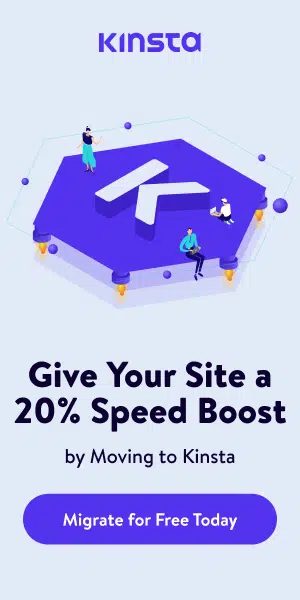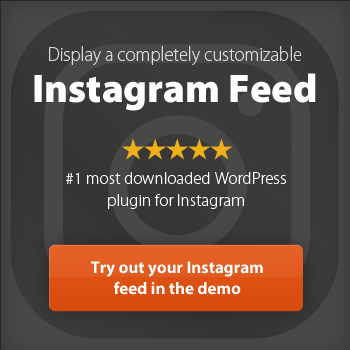Marketing a small business online can feel like solving a puzzle with too many pieces. How do you make your website stand out? How do you target the right audience and measure success without blowing your budget? If you’re a small business owner facing these challenges, you’re not alone.
Digital marketing campaigns play a crucial role in creating effective online marketing strategies that generate valuable leads and conversions for businesses.
This guide is here to help. We’ll explore actionable strategies tailored for small business owners, offering insights to help you conquer your website marketing challenges. From understanding your audience to leveraging SEO and digital marketing strategies, this blog post will provide practical guidance to boost your website’s performance and increase your online visibility.

Understand Your Target Audience
Creating an effective website marketing strategy starts with understanding your target audience. After all, how can you market effectively if you don’t know whom you're trying to reach?
Identify Your Ideal Customer
Start by defining your ideal customer through market research and analysis. Ask questions like:
- What are their demographics (age, gender, location)?
- What are their interests and pain points?
- How do they typically interact with businesses like yours?
Understanding your ideal customer can also help in creating effective email marketing campaigns tailored to audience segments.
Looking for an experienced Wordpress Development company?
Analyze Your Target Audience’s Needs and Preferences
Understanding your target audience’s needs and preferences is the cornerstone of an effective website marketing strategy. By delving into the demographics, behaviors, and interests of your audience, you can tailor your marketing efforts to resonate more deeply with them, thereby increasing the likelihood of conversions.
Start by leveraging tools like Google Analytics to gain insights into your audience’s behavior on your site. Look at metrics such as the most visited pages, traffic sources, and user demographics. Social media platforms also offer valuable insights into your audience’s interests and engagement patterns. Additionally, consider conducting online surveys to gather direct feedback from your audience.
By thoroughly analyzing this data, you can create content and marketing campaigns that speak directly to your audience’s needs and preferences. This targeted approach not only drives more website traffic but also enhances the overall effectiveness of your marketing strategy.
Create Buyer Personas
Buyer personas are fictional representations of your ideal customers. They help you visualize and better cater to your audience's needs. For example:
- Sophia the Social Shopper: A 25-year-old who loves Instagram and shopping for sustainable clothing.
- Mark the Marketing Manager: A 40-year-old who needs tools to automate his team’s workflow.
Use Analytics Tools
Tools like Google Analytics provide invaluable insights into your audience’s behavior. Monitor:
- The pages your visitors interact with the most.
- Traffic sources (e.g., social media, search engines).
- The demographics of your site visitors.
Understanding these metrics will help you adjust your marketing efforts for maximum effectiveness.

Set Clear Objectives and Assess Current Efforts
Without clear marketing objectives, it’s hard to know what success looks like. Start by outlining achievable goals for your website marketing strategy.
Define Your Website Marketing Goals
Your goals might include:
- Driving more traffic to your website.
- Increasing online conversions (sign-ups, purchases, etc.).
- Building email opt-in lists.
Make your goals SMART (Specific, Measurable, Achievable, Relevant, Time-bound). For example, “Increase website traffic by 25% in the next three months.
Audit Your Current Marketing Efforts
Perform a thorough website and internet marketing audit. Identify:
- Weaknesses in your current strategy.
- Pages with high bounce rates.
- Underperforming SEO tactics.
Based on your findings, focus on improving those areas to align them better with your new objectives.
Develop a Unique Value Proposition
What sets your business apart from your competitors? Your unique value proposition (UVP) should clearly communicate why potential customers should choose your business over others. Incorporate this messaging consistently across your website.

Build a Digital Marketing Strategy
Create an Effective Website Marketing Strategy
Creating an effective website marketing strategy involves a series of deliberate steps designed to align your marketing efforts with your business goals. Begin by clearly defining your target audience and understanding their needs. This foundational step ensures that all subsequent efforts are focused and relevant.
Next, set clear, measurable objectives for your website marketing strategy. Whether your goal is to increase website traffic, boost conversions, or build an email list, having specific targets will guide your efforts and provide a benchmark for success.
Conduct a thorough assessment of your current marketing efforts to identify strengths and areas for improvement. This audit will help you refine your strategy and focus on tactics that yield the best results. Develop a unique value proposition that clearly communicates the benefits and unique selling points of your business. This proposition should be consistently reflected across all marketing channels.
Finally, choose the right mix of tactics to execute your strategy. Incorporate search engine optimization (SEO) to improve your visibility on search engines, leverage social media marketing to engage with your audience, and use email marketing to nurture leads and drive conversions. By following these steps, you can create a comprehensive and effective website marketing strategy that drives results.
Leverage Multiple Digital Channels
Effective website marketing integrates multiple channels to reach your audience. Leveraging multiple digital channels is crucial for the success of an online business. Here’s how:
- search Engines: Optimize your pages using relevant keywords to improve your search engine ranking.
- Social Media Marketing: Share your content on platforms like Instagram, Facebook, or LinkedIn to drive traffic.
- Email Campaigns: Use email marketing to nurture leads and keep your audience engaged.
Track Metrics with Google Analytics
Track important data, such as:
- Visitors’ time on site.
- Conversion rates.
- Traffic sources (organic, social, paid).
This real-time data will help you adjust your marketing strategy.

Take a Content-Driven Approach
A strong content marketing strategy is essential for attracting and retaining your target audience.
By employing SEO best practices, a strong content marketing strategy can significantly improve your rankings on search engine results pages, leading to higher visibility and more traffic.
Create Valuable Content
Produce material that resonates with your audience:
- Blog posts that address common questions or challenges.
- Infographics that simplify complex topics.
- How-to videos showing how your product or service solves customer problems.
Utilize a Content Calendar
Plan your content schedule in advance. Consistency is key to building an audience that trusts your brand.
Measure Content Effectiveness
Use metrics like engagement rates, shares, and site traffic to determine which types of content drive the best results.

Harness the Power of Social Media
A strong social media presence drives website traffic and introduces your business to new customers.
Choose the Right Platforms
Focus on the platforms your target audience uses the most. For example:
- Instagram: Ideal for visual-driven businesses like fashion or food.
- LinkedIn: Perfect for B2B companies targeting professionals.
- Facebook: Great for community-building.
Engage Authentically
Social media isn’t just about broadcasting messages; it’s about building relationships. Respond to comments, participate in conversations, and share user-generated content.

Maximize ROI with Paid Advertising
If you’re looking for fast, measurable results, paid ads can give your business the boost it needs.
Use Tools Like Google Ads
Run search ads targeting specific keywords that potential customers use when searching for products or services like yours.
Explore Social Media Ads
Platforms like Facebook Ads Manager allow you to create highly targeted campaigns based on demographics, interests, and behaviors.
Monitor ROI
Evaluate metrics like cost-per-click (CPC) and conversion rates to ensure your ad spend is delivering value.

Don’t Neglect Email Marketing
Email marketing remains one of the most cost-effective ways to maintain communication with leads and customers.
Build Your Email List
Encourage sign-ups through lead magnets like free guides, checklists, or exclusive discounts.
Automate Campaigns
Use tools to:
- Send timely emails to abandoned cart shoppers.
- Share recommendations based on buying behavior.
- Re-engage inactive subscribers.
Follow CAN-SPAM Guidelines
To build trust, ensure your emails comply with regulations. Make it easy for readers to unsubscribe and keep your communication relevant.

Strengthen Your SEO Game
Search engine optimization (SEO) is critical for improving your website’s visibility.
Focus on Local SEO
If you’re a local business, optimize for local search by:
- Claiming your Google My Business listing.
- Encouraging customers to leave reviews.
Prioritize Technical SEO
Ensure that your website is mobile-friendly, loads quickly, and is easy to navigate.
Conduct Regular SEO Audits
Use tools like Semrush or Ahrefs to:
- Find and fix broken links.
- Optimize underperforming pages.
- Identify keyword opportunities.

Build Brand Recognition and Trust
Consistency in branding and messaging establishes trust with your audience.
Highlight Online Reviews
Positive reviews act as social proof. Use customer testimonials on your website and in email campaigns.
Foster Brand Loyalty
Create rewards programs or exclusive offers that keep your existing customers coming back for more.

Explore Influencer Marketing and Brand Partnerships
Influencer marketing and brand partnerships are powerful strategies to expand your reach and introduce your business to new audiences. By leveraging the credibility and following of influencers or collaborating with complementary brands, you can drive significant website traffic and enhance your online presence.
Partner with Influencers for Website Promotion
Partnering with influencers can be a game-changer for your website marketing strategy. Influencers have built trust and credibility with their followers, making their endorsements highly impactful. To get started, identify influencers within your industry who have a substantial following and align with your brand values. Reach out to them with a clear proposal for collaboration, whether it’s through sponsored content, product reviews, or social media takeovers.
Ensure that your objectives and expectations are clearly communicated, and provide influencers with the necessary resources to promote your website effectively. This partnership can drive significant traffic to your site and increase conversions by tapping into the influencer’s established audience.
Build Effective Brand Partnerships
Building effective brand partnerships involves collaborating with other businesses to co-promote each other’s products or services. This strategy can help you reach new audiences, build credibility, and drive website traffic. Start by identifying businesses that share a similar target audience and align with your brand values. Reach out to propose a collaboration, such as co-branded content, joint promotions, or bundled offers.
Clearly communicate your objectives and expectations, and ensure that both parties have the necessary resources to promote the partnership effectively. By working together, you can leverage each other’s strengths and audiences to achieve mutual growth and success.
By incorporating these strategies into your overall marketing plan, you can enhance your website’s visibility, drive more traffic, and ultimately boost your online presence.

Level Up Your Website Marketing Game
As a small business owner, an effective web marketing strategy doesn’t have to be overwhelming. Start with clear objectives with your digital marketing efforts, understand your audience, and use a mix of strategic channels and website marketing strategies to promote your website. By focusing on content, social media channels, SEO, and email marketing, you’ll position your business for long-term growth, ensuring your brand voice reaches more visitors.
Looking for personalized recommendations? Contact Priceless Consulting for a free website audit and consultation today. Together, we’ll help your business stand out online. Whether your looking to create an SEO strategy, run AD campaigns, wanting to better your social media pages and increase social media engagement, or looking for help with email marketing campaigns, we do it all!
And don’t forget to share this post with other small business owners who may benefit from these insights. Empower your peers and strengthen your community!
Learn More About Website Marketing
To deepen your knowledge and explore effective website marketing strategies, check out these valuable resources from credible sources:
- Google's Search Engine Optimization (SEO) Starter Guide – An official introduction to SEO best practices directly from Google.
- Neil Patel's Website Traffic Tips – Expert insights on driving website traffic and increasing conversions from one of the industry's leading marketers.
- Moz's Beginner's Guide to SEO – A detailed, easy-to-follow guide that explains how search engines work and how you can optimize your site accordingly.
- Content Marketing Institute – Strategy and Insights – Explore articles, tools, and research on enhancing your content marketing strategies.
- Yoast SEO Blog – A comprehensive resource for SEO tips, techniques, and updates, offering practical guidance for optimizing your website.
- HubSpot's Marketing Blog – Covers a range of topics from inbound marketing to sales strategies, ensuring actionable insights for growing your business.
- Neil Patel's Blog – Features valuable advice on digital marketing, SEO trends, and tools to enhance your online presence.
- Moz Blog – Provides in-depth articles on SEO, keyword research, and link building, helping businesses improve their search engine rankings.
- Backlinko – A go-to resource for advanced SEO strategies, content marketing techniques, and link-building tips.
These trusted resources will help you implement advanced techniques and refine your approach to online marketing effectively.







